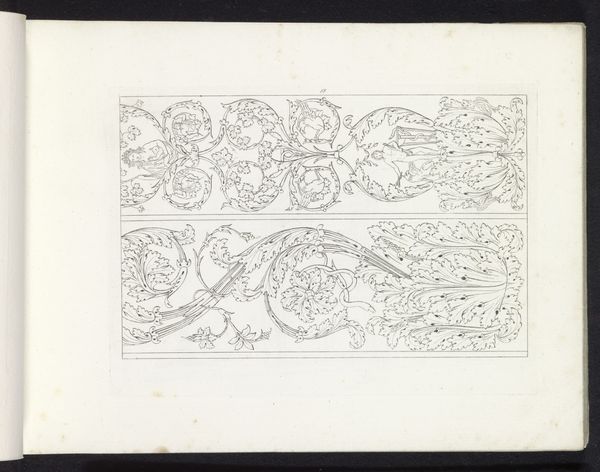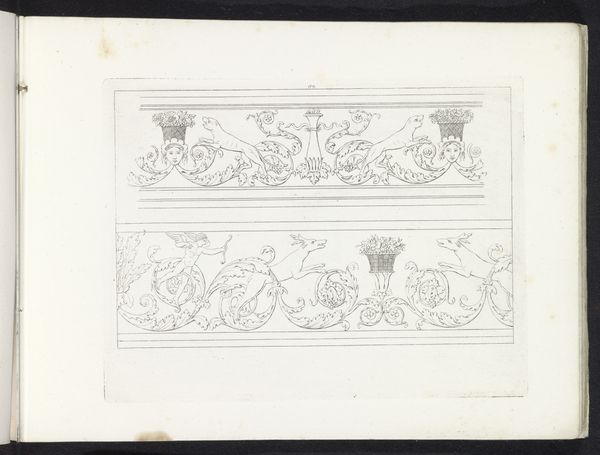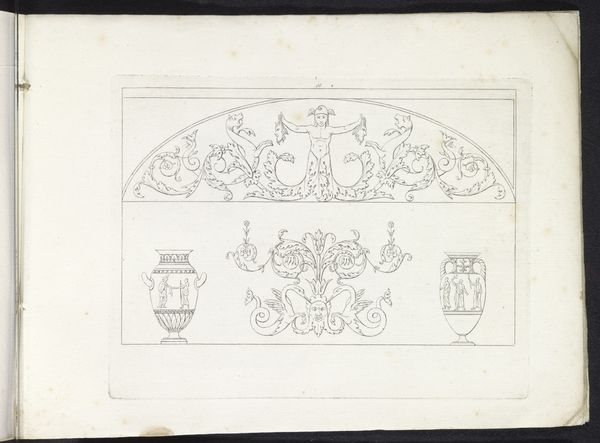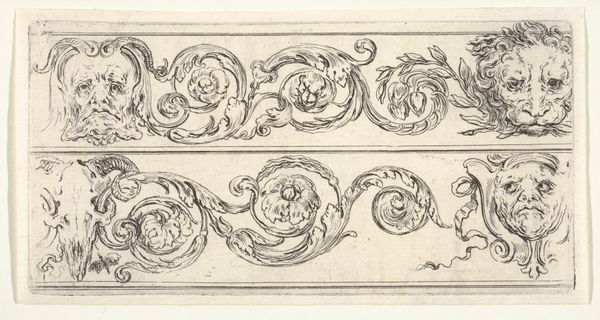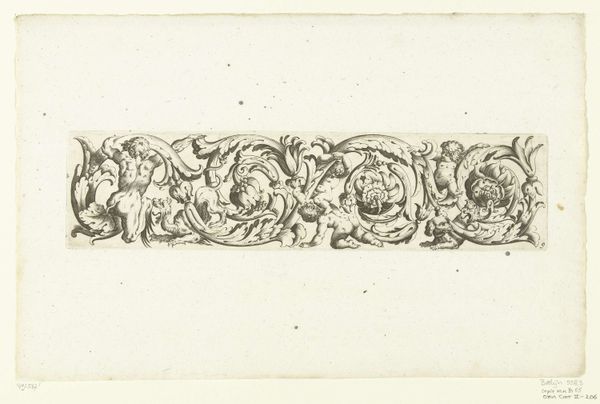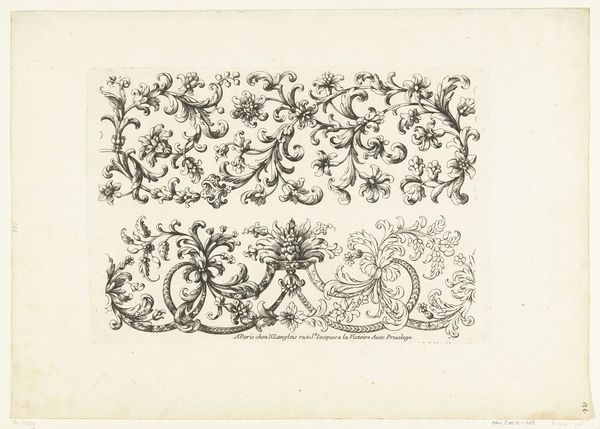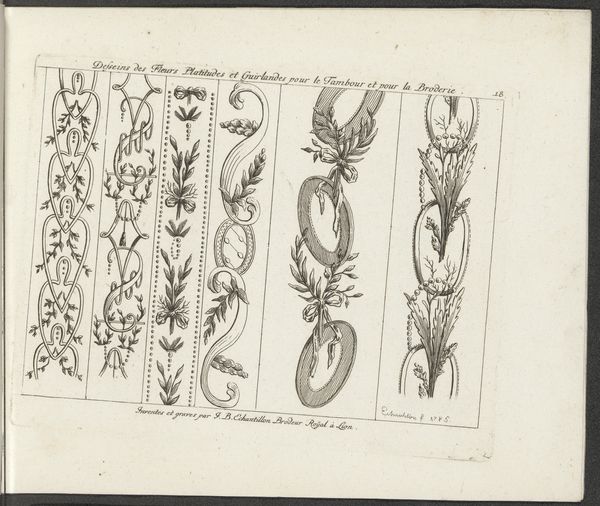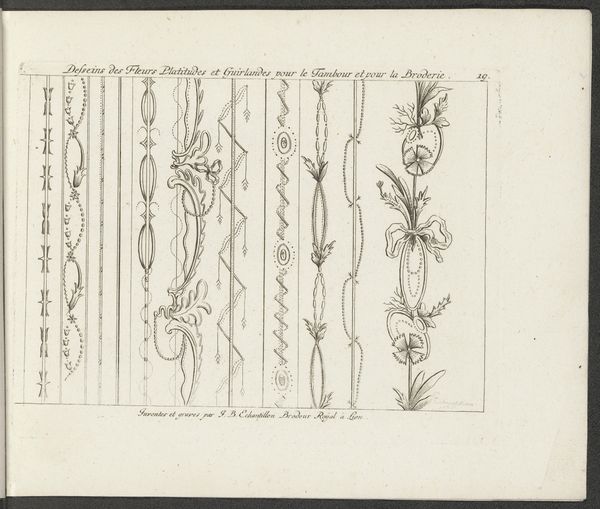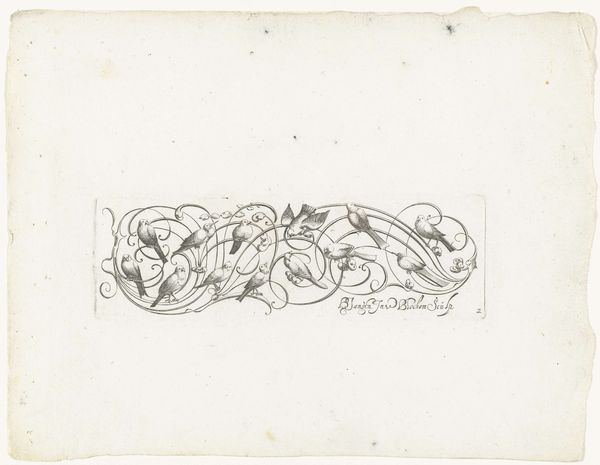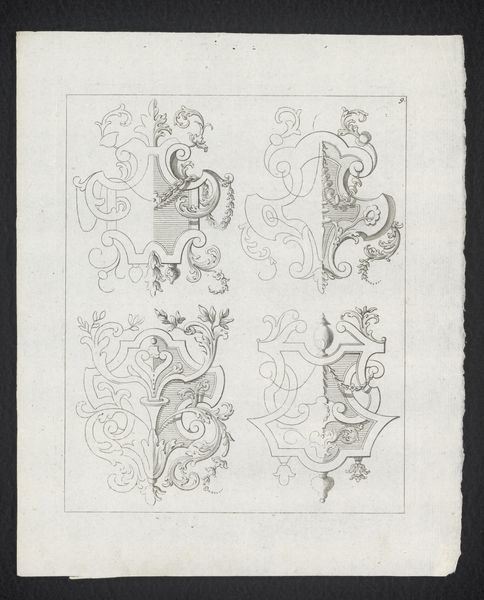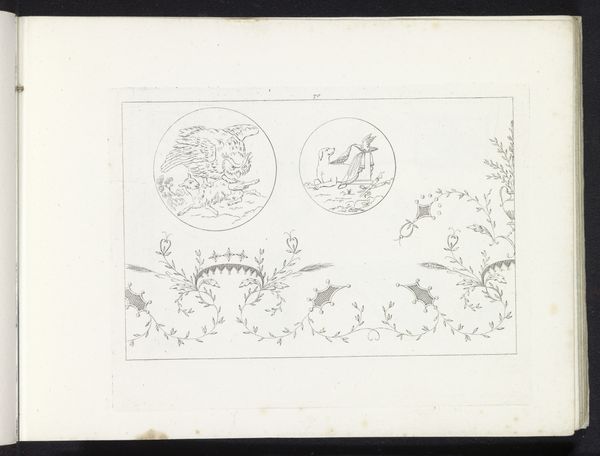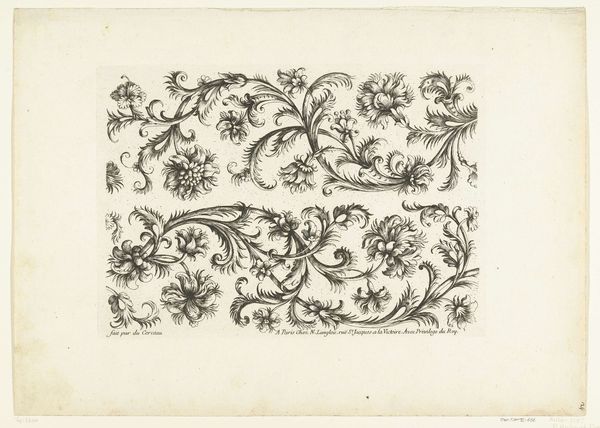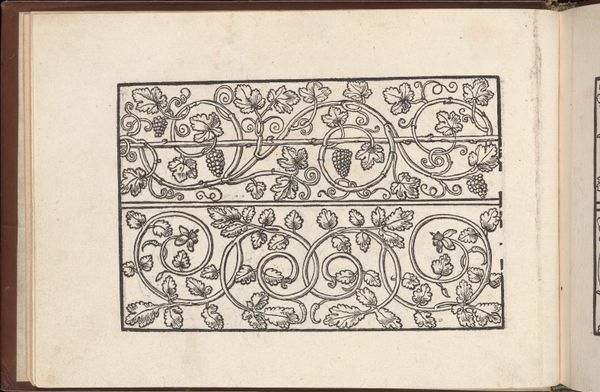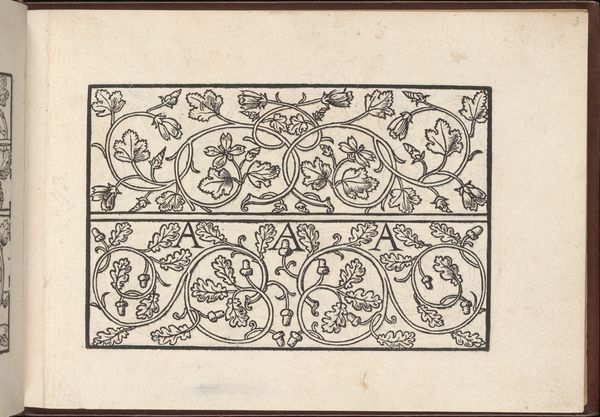
drawing, pen
#
drawing
#
comic strip sketch
#
neoclacissism
#
pen illustration
#
pen sketch
#
hand drawn type
#
personal sketchbook
#
geometric
#
pen-ink sketch
#
thin linework
#
line
#
pen work
#
sketchbook drawing
#
pen
#
decorative-art
#
sketchbook art
Dimensions: height 155 mm, width 214 mm
Copyright: Rijks Museum: Open Domain
Pietro Ruga rendered these two ornamental borders with arabesques using pen and ink. The elaborate, swirling foliage is immediately striking, a motif we recognize as the arabesque. But let us trace this sinuous line back through time. We see echoes of it in the tendrils of Hellenistic friezes, in the illuminated manuscripts of the Islamic Golden Age, and even further back to ancient Egyptian art. This recurring motif speaks to a deep-seated human fascination with nature’s boundless, interconnected rhythms. Consider how the floral elements, initially derived from real plants, evolve into abstract, almost fantastical forms. The naturalism fades, and what remains is a stylized echo, pregnant with symbolism. This transformation is not merely decorative, but rather a reflection of how collective memory and subconscious longings shape our visual language. Like a dream, the arabesque hints at the subconscious, evoking primal emotions related to growth, decay, and the cyclical nature of life. The arabesque, therefore, is more than just ornament; it is a vital strand in the web of cultural memory, ever resurfacing, ever transformed.
Comments
No comments
Be the first to comment and join the conversation on the ultimate creative platform.
